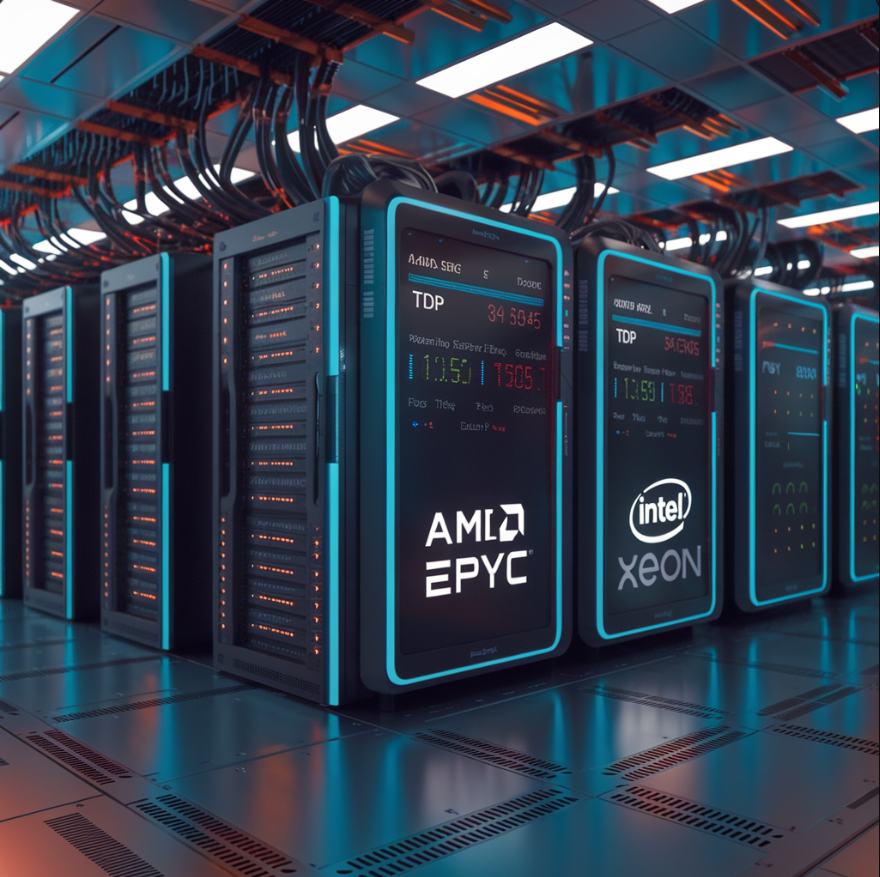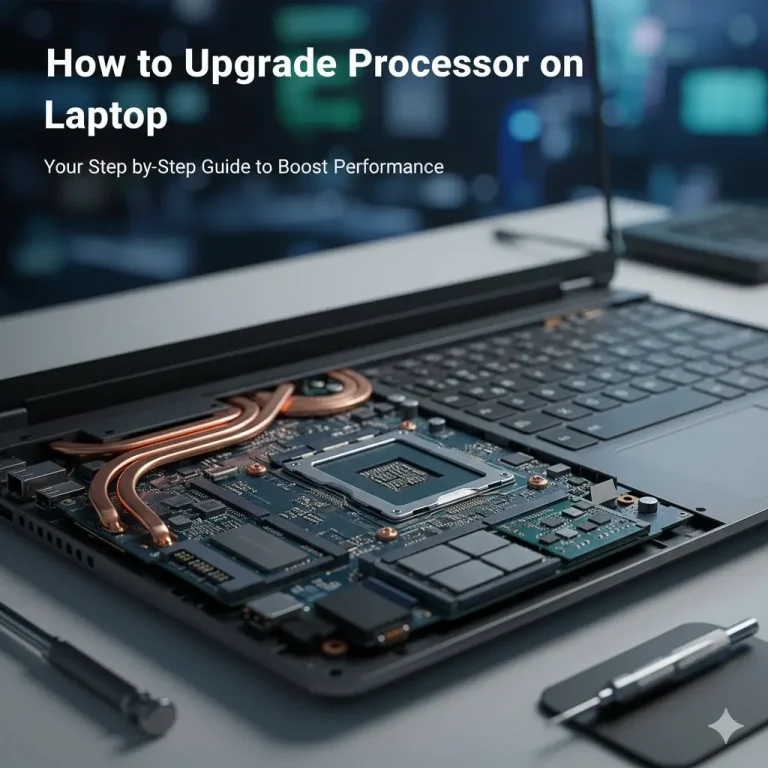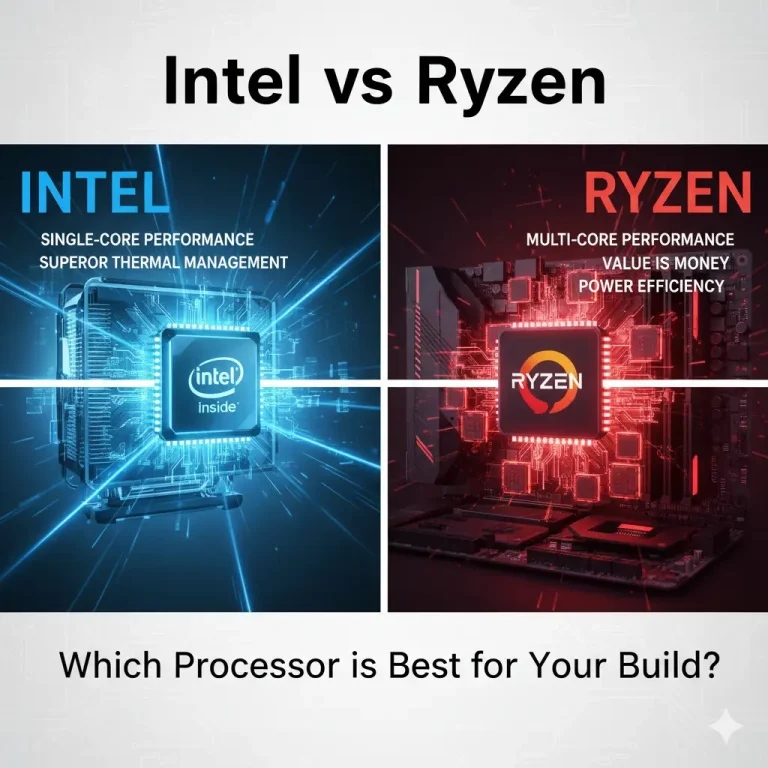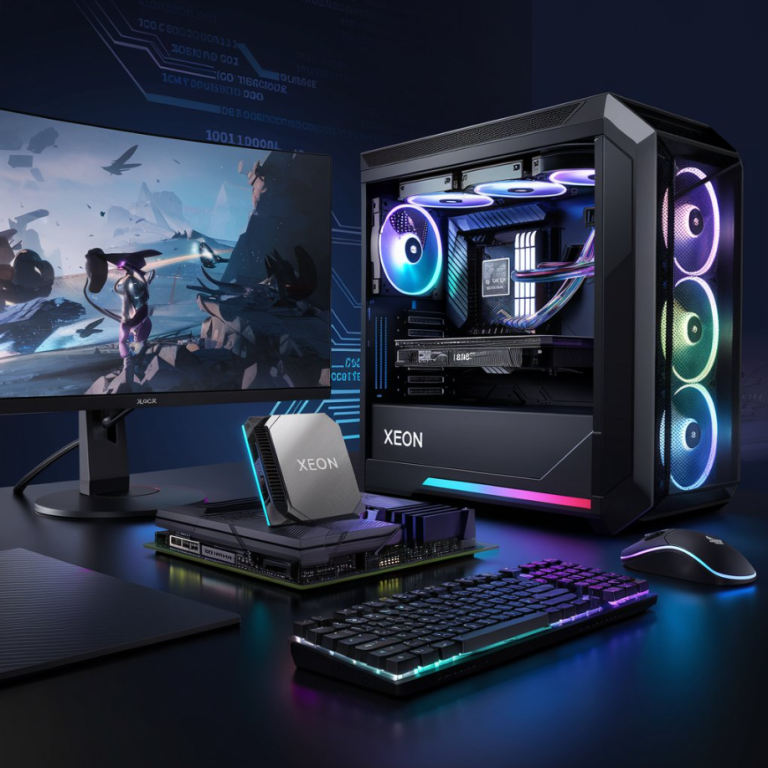AMD EPYC vs Intel Xeon Comparison for Modern Server:
The competition between AMD EPYC and Intel Xeon defines the landscape of high-performance server processors. These industry leaders dominate the multi-core processor market, delivering advanced solutions for virtualization, artificial intelligence, and data center workloads. Whether configuring a Supermicro server or optimizing VMware environments, the choice between AMD EPYC vs Intel Xeon plays a critical role in determining system performance, budget efficiency, and scalability. This article explores their architectures, performance benchmarks, and ideal use cases to guide you in making the best decision for your needs.
AMD EPYC:

AMD EPYC processors have revolutionized the server market with their high core counts, advanced instruction set architecture, and energy efficiency. In the ongoing AMD EPYC vs Intel Xeon rivalry, EPYC stands out for its innovative design and scalability. Let’s break down the EPYC family, its ranges, and key features to understand why it’s a top choice for modern server solutions.
AMD EPYC Series and Ranges:
The AMD EPYC lineup is divided into several series, each tailored for specific workloads:
- EPYC 7002 Series: Built on a 7nm process, these processors offer up to 64 cores and 128 threads, making them ideal for data-intensive tasks and virtualization.
- EPYC 7003 Series: The latest generation, featuring Zen 3 architecture, delivers improved IPC (Instructions Per Cycle) and higher clock speeds.
- EPYC Embedded: Designed for embedded systems and edge computing, these processors balance performance and power efficiency.
Features of AMD EPYC:
- High Core Counts: Up to 64 cores and 128 threads for unparalleled multi-threaded performance.
- PCIe 4.0 Support: Doubles the bandwidth compared to PCIe 3.0, enhancing GPU and NVMe performance.
- 8-Channel Memory: Supports up to 4TB of DDR4 RAM, ideal for memory-heavy applications.
- Security Features: Includes Secure Memory Encryption (SME) and Secure Encrypted Virtualization (SEV) for enhanced data protection.
Intel Xeon:

Intel Xeon processors have long been the go-to choice for enterprise servers, offering reliability and strong single-thread performance. Here’s an overview of the Xeon family and its features.
Intel Xeon Series and Ranges:
The Intel Xeon lineup is categorized into several families, each targeting different market segments:
- Xeon E-Series: Entry-level processors for small businesses and desktop computers.
- Xeon Silver: Mid-range processors offering a balance of performance and cost.
- Xeon Gold: High-performance processors for data centers and virtualization.
- Xeon Platinum: Top-tier processors with advanced features for mission-critical workloads.
Features of Intel Xeon:
- Strong Single-Thread Performance: Excellent for legacy applications and enterprise software.
- Intel Turbo Boost: Dynamically increases clock speeds for demanding tasks.
- 6-Channel Memory: Supports up to 1.5TB of DDR4 RAM, sufficient for most workloads.
- Security Features: Intel SGX (Software Guard Extensions) and TXT (Trusted Execution Technology) are Included for robust data security.
AMD EPYC vs Intel Xeon: Detailed Comparison
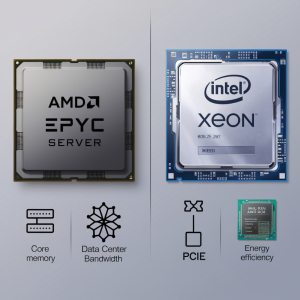
Now that we’ve explored the families and features of both processors, let’s dive deeper into specific aspects like scalability, security features, processor price, compatibility, use cases, and future development, and choose according to need.
Benefits of Scalability:
- AMD EPYC: With support for up to 64 cores and PCIe 4.0, EPYC processors are highly scalable, making them ideal for cloud computing and AI workloads.
- Intel Xeon: While scalable, Xeon processors are limited by their 6-channel memory and PCIe 3.0 support, which can bottleneck performance in large-scale deployments.
Security:
- AMD EPYC: Offers advanced security features like SME and SEV, ensuring data protection in virtualized environments.
- Intel Xeon: Provides robust security with Intel SGX and TXT, though some features require additional software integration.
Processor Price Range:
- AMD EPYC: Generally offers better value due to higher core counts and energy efficiency, though initial costs can be higher.
- Intel Xeon: More affordable upfront but may incur higher long-term costs due to increased power consumption.
Compatibility:
- AMD EPYC: Best suited for modern applications and hypervisors like VMware and KVM.
- Intel Xeon: Offers better compatibility with legacy software and hypervisors, making it a safer choice for older systems.
Uses:
- AMD EPYC: Ideal for data centers, AI workloads, and cloud infrastructure due to its high core counts and PCIe 4.0 support.
- Intel Xeon: Better suited for enterprise servers, legacy applications, and budget-conscious deployments.
Future Innovations:
- AMD EPYC: Continues to innovate with Zen 4 architecture and 5nm process, promising even greater performance and efficiency in the AMD EPYC vs Intel Xeon competition.
- Intel Xeon: Focused on improving single-thread performance and security features, though lagging in core counts and AMD EPYC vs Intel Xeon adoption.
Choosing According to Your Need:
- Choose AMD EPYC :
- You need high core counts for multi-threaded workloads.
- Your applications require PCIe 4.0 and high memory bandwidth.
- Energy efficiency and scalability are priorities.
- Choose Intel Xeon:
- You rely on legacy applications and enterprise software.
- Strong single-thread performance is critical.
- You have a limited upfront budget.
FAQs:
Is Intel Xeon better than AMD EPYC?
It depends on your workload. Intel Xeon excels in single-thread performance and legacy software compatibility, making it better for certain enterprise applications. However, AMD EPYC outperforms Xeon in multi-core workloads, energy efficiency, and scalability, making it ideal for modern data centers and AI tasks.
Is AMD EPYC good for servers?
Yes, AMD EPYC is excellent for servers. With high core counts, PCIe 4.0 support, and advanced security features like SME and SEV, EPYC processors are well-suited for virtualization, cloud computing, and data-intensive workloads.
What is the AMD equivalent to Intel Xeon?
The AMD EPYC series is the direct competitor to Intel Xeon. Both are designed for server and workstation environments, offering high performance, reliability, and advanced features for enterprise and data center applications.
What are the disadvantages of Xeon processors?
The main disadvantages of Intel Xeon processors include:
- Lower core counts compared to AMD EPYC.
- Higher TDP and power consumption, leading to increased operational costs.
- Limited to PCIe 3.0 in many models, reducing bandwidth for modern GPUs and NVMe storage.
Can Intel Xeon processors be used for gaming?
While Intel Xeon processors are primarily designed for server and workstation environments, some models can handle gaming. However, they are not optimized for gaming performance compared to consumer-grade CPUs like Intel Core or AMD Ryzen. For a detailed analysis, check out our guide on the Best Xeon Processor for Gaming.

